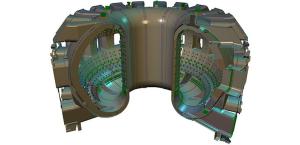Industry and ITER to discuss vessel schedule
Next week, 18—21 January, the 6th meeting of the ITER Technical Advisory Group (TAG) will take place in Cadarache. The TAG, chaired by Michel Huguet, is formed of senior engineers, scientists and project managers from a wide range of ITER-related research activities and industry to advise ITER management. This 6th meeting will focus on the technical challenges associated to the construction of components affecting the ITER schedule in a major way. Solutions implemented will lead to the optimum path towards a burning plasma fuelled by deuterium and tritium.
Today the driving issue related to the ITER schedule is the necessary manufacturing time for the vacuum vessel. Current estimates vary depending on available infrastructure, necessity of prototypes and manufacturing processes. "Time is money," says ITER Deputy Director-General Norbert Holtkamp, "the question is more or less ... what is the minimum time for minimum cost?"
The third day of the TAG meeting will be devoted to a vacuum vessel schedule forum that will include approximately twenty industry representatives from Europe, Japan and Korea who have been invited to provide recommendations based on their expertise. Six members of the European Domestic Agency will also attend, including its new director Frank Briscoe.
The recommendations from TAG will be combined together with outputs from other schedule-related meetings so that the ITER Organization and the Domestic Agencies can implement a schedule which minimizes risk and maximizes feasibility. These results will then be presented to the Heads of Delegations in February this year.


